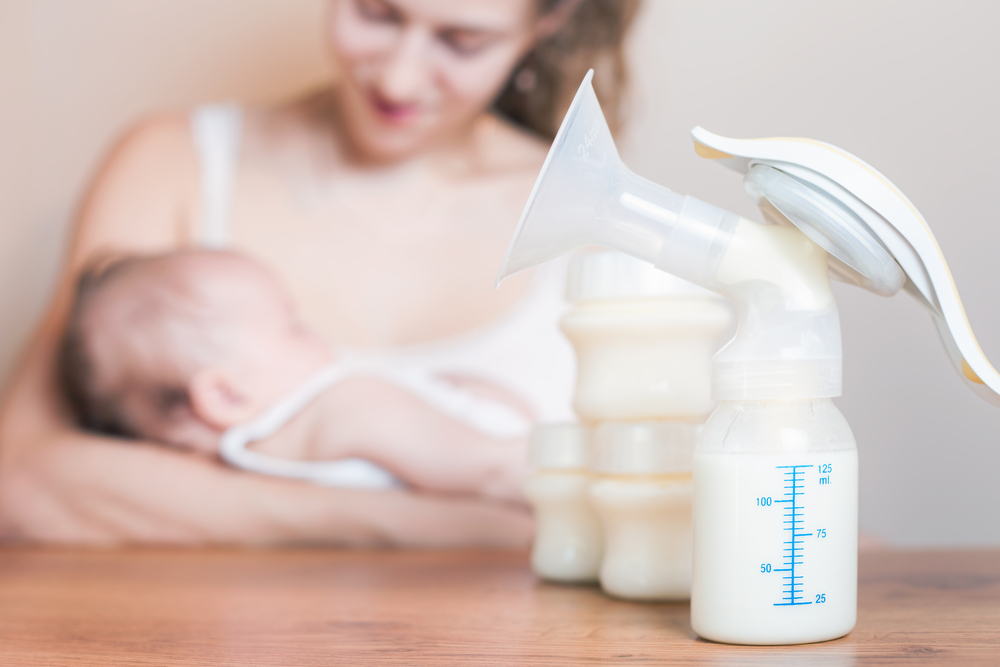
Breastfeeding, or nursing, is the act of feeding a baby breast milk either directly from the breast or expressed in a bottle. In general, a lactating mum requires about 500 more calories than mothers who don’t breastfeed. If you are a mum who is breastfeeding, you will require a nutritious diet to supplement the nutrients lost from your body when making milk.
Some foods are known to promote lactation, but there are some foods to avoid when breastfeeding. Knowing what not to eat when breastfeeding can play a part in improving or maintaining your breast milk supply for your baby. Not all mothers react the same way, and a known milk killer for others may even increase your supply, but here is a list of what not to eat when breastfeeding.
10 Foods to avoid when breastfeeding
1. Cabbage
Cabbage has been used to relieve breast engorgement and reduce breast milk supply since centuries ago. However, for this particular food, it is not so much about eating than it is about application.
Typically, chilled cabbage leaves would be placed on each breast for 20 minutes thrice a day when mums wanted to wean. Some mums do report that it causes a dip in milk supply though.
Try this instead: Lettuce leaves can be substituted for cabbage leaves and counts as part of the green leafy vegetables that are needed to help boost milk supply.
2. Peppermint
Peppermint and spearmint have been known to adversely affect milk supply. It is wise to avoid peppermint candies made from peppermint oil too.
Try this instead: While there is nothing quite like mint, if you’d like a refreshing taste, try zesting some orange instead.
3. Alcohol
A highly debatable topic, the safest option as suggested by the Centers for Disease Control and Prevention is to not drink alcohol at all while breastfeeding. However, if a mother drinks about one standard drink a day and waits two hours after drinking to nurse her baby, there should not be any harmful effect to the infant.
Drinking excessive amounts of alcohol could cause impairment and a reduced ability to properly care for your baby.
Try this instead: Non-alcoholic beer or wine with 0% alcohol are relatively new products on the market that you can try in moderation.
4. Caffeinated coffee and tea
Caffeine in coffee and tea is a known diuretic, meaning that it increases the need to urinate. Breast milk is made of 88% water and consuming large amounts of caffeine could cause a decrease in your milk supply.
Try this instead: Limit your caffeine intake to less than 300mg per day and hydrate yourself adequately. There are plenty of options for decaffeinated coffee. For tea, try floral teas such as rose or chrysanthemum.
5. Fish high in mercury
When lactating, being selective of the type of fish you consume is key. Consuming fish high in mercury content means that some of it may find its way into your milk supply and your baby’s system. Examples of fish high in mercury include king mackerel and swordfish.
Try this instead: Sardines, pollack and flounder are a few types of fish that you can safely consume as they are known to be lower in mercury.
6. Overly spicy food
Traces of spicy food may pass into breast milk and affect its taste. Some mums report that their breastfed babies seem more irritable and upset after they consume overly spicy foods. If this happens to your baby, try adjusting your diet to a milder one.
Try this instead: Adding a dash of curry powder flavours your food without overpowering it. Curry is a health food that protects against heart diseases.
7. Dairy
One of the most common foods to avoid when breastfeeding is dairy. Babies can be allergic to dairy and symptoms can range from fussiness after nursing, sleep issues or eczema. To rule out a dairy allergy, skip products containing dairy for a few weeks to see if it is indeed the cause.
Try this instead: Nut milks are popular alternatives for those who are lactose intolerant. Cashew or almond milk can be made from scratch at home easily.
8. Peanuts
If you have a family history of peanut allergy, add peanuts to the “What not to eat when breastfeeding” list. Peanut allergens can be transmitted into breast milk and cause wheezing, rashes or hives.
Try this instead: Seeds such as sunflower or pumpkin, or beans like chickpeas and soybeans can provide a similar taste profile to peanuts.
9. Ginseng
There are mixed reactions to the consumption of ginseng when breastfeeding. Ginseng is classified as a medicinal herb and though it is considered safe when consumed in low amounts, some lactating mums have reported breast tenderness after long periods of consumption.
Try this instead: There is no known substitute for ginseng, but keeping hydrated and a good night’s sleep can help you boost your energy levels much like ginseng does.
10. Oregano
Although there is little data to suggest that oregano is linked to a dip in breastmilk supply, it is recommended that lactating mums avoid excessive consumption of the herb.
Try this instead: Limiting your intake of herbs when breastfeeding is ideal if you wish to maintain your breast milk supply.
It should be noted that a moderate consumption of the above foods will not cause a drastic dip in milk supply. Most lactating mums do not consume enough amounts to adversely affect milk supply. The bottomline is to exercise discretion when consuming the above foods.























